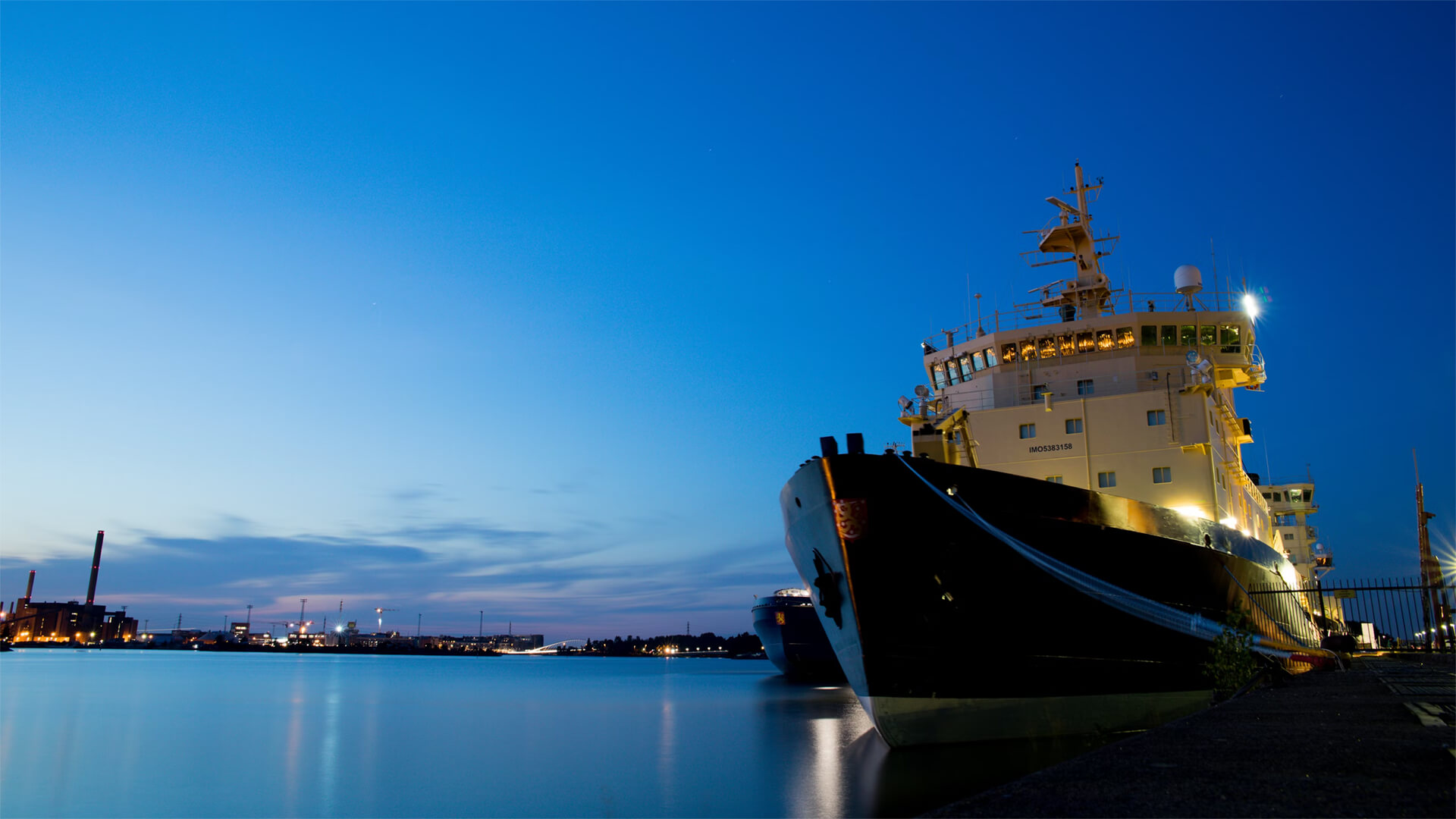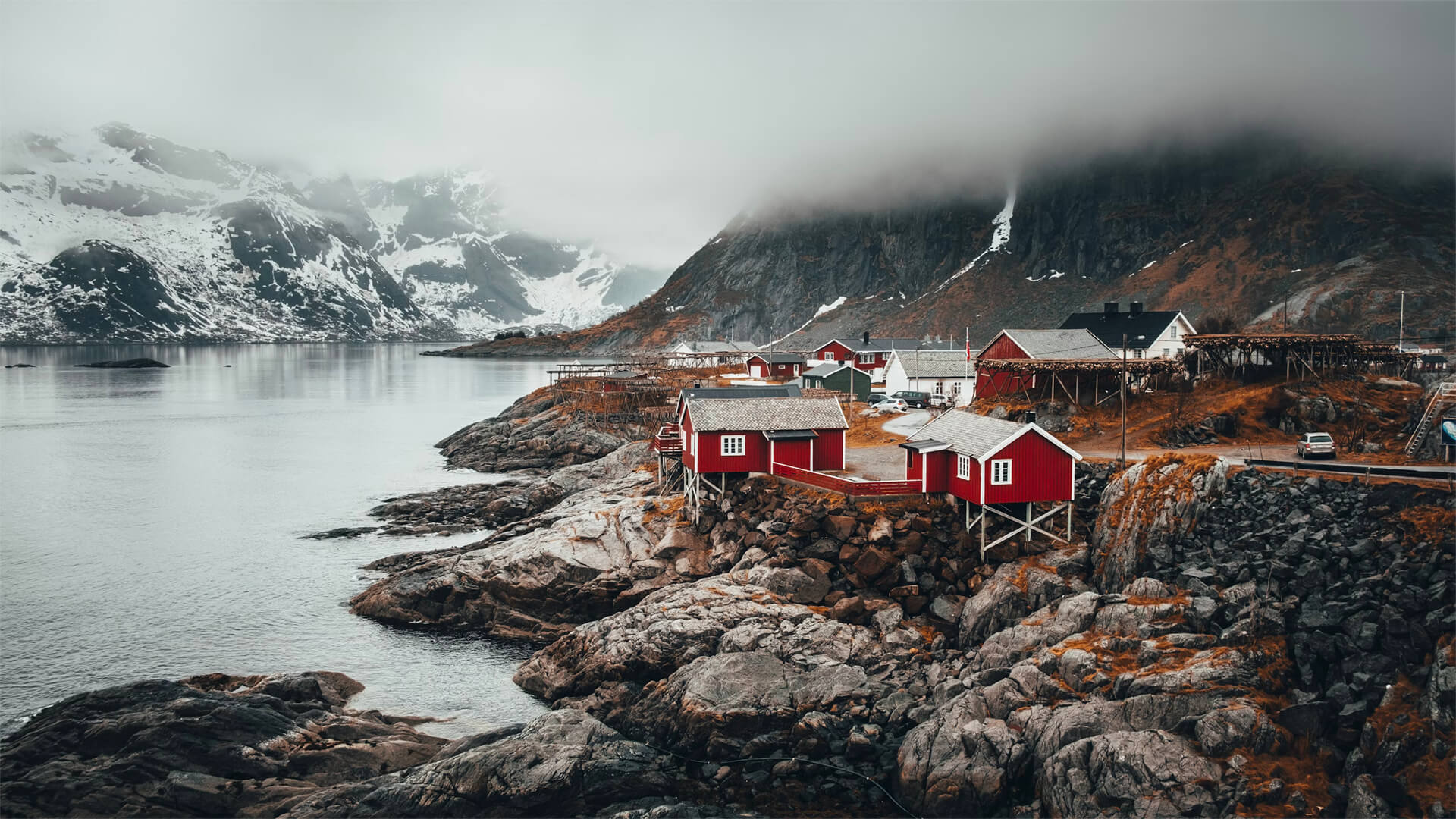The Nordic nations are teasing a new initiative of inspecting ships leaving Russia’s St. Petersburg port for insurance and environmental compliance. This may seem insignificant, but it could disrupt shipping on a global scale.
Russia has relied on its shadow fleet (uninsured and aging tankers) to export oil after the sanctions began; this new initiative aims to curb Russian income and disrupt funds for the war in Ukraine. But what happens when one of these countries completes an inspection and decides to confiscate or detain one of these ships? We’re talking about uncharted maritime territory…and it could get messy very quickly as countries start to take maritime security and trade into their own hands.
A return to localized maritime security enforcement and controls won’t look the same everywhere. The Western Hemisphere and the Nordic countries will experience some shortages but be mostly fine. The Mediterranean’s future would rely on cooperation between Italy, France and Turkey. Places that are heavily reliant on energy and food imports (i.e. East Asia) could face economic collapse or famine.
Here at Zeihan on Geopolitics, our chosen charity partner is MedShare. They provide emergency medical services to communities in need, with a very heavy emphasis on locations facing acute crises. Medshare operates right in the thick of it, so we can be sure that every cent of our donation is not simply going directly to where help is needed most, but our donations serve as a force multiplier for a system already in existence.
For those who would like to donate directly to MedShare or to learn more about their efforts, you can click this link.
Transcript
Hey, everybody. Peter Zeihan here. Coming to you from the Tongariro Crossing in New Zealand. We finally got a break in the weather, just in time for the emerald pools, which are, you know, volcanic and super stinky. Anyway, on the 17th, 18th, of December, representatives from all the Nordic nations, plus Poland and Britain. So that’s, Norway, Sweden, Finland, Denmark, Estonia, Latvia, Lithuania, basically got together and said that they’re going to start checking ships that are coming out of Saint Petersburg port in the Baltic Sea, for things like insurance and compliance with environmental regulations.
In order to disrupt the shuttle fleet, the shuttle fleet is how the Russians are getting their cruise to market since they canceled by pipeline, and they can’t use Western maritime insurance or navigation aids. They basically, have to get insurance from the Russian government, the Chinese government or the Indian government. And there’s a suspicion that no one is actually issuing policies that pieces are just sailing.
They get out of the port, regardless of whether or not they have a policy. Not the Indians, the Chinese and the Russians have never actually paid out on one before. So if there was an accident, the idea is that there would be no one there to help pay for the cleanup. But more to point, the Shadow fleet is how the Russians get their money.
They basically have uninsured or under-insured old aging tankers, that evade everything that the Europeans are trying to do to shut Russian oil out of their systems, and especially to deny, income to the Russians as they’re launching a war in Ukraine. Will it work? It all depends upon how the Nordics and the poles and the Brits decide to handle enforcement.
So if a ship doesn’t have anything, what does that mean? You confiscate it, you take it into port. That would be getting into some very interesting territory, that it would be uncharted in the modern age. The whole idea of globalization as created by and then guaranteed by the United States since World War two, is that anyone can sail anywhere at any time.
And you don’t necessarily have to have insurance, although that’s a really good idea. And if the Russians don’t have it, it’s then up to the Nordics to decide what to do. And if the ships are confiscated, because they don’t have something that is not technically illegal, or they haven’t complied with something that just someone said that they needed to do.
We enter into a new phase of naval maritime transport. If if, if, if we go down that road that there’s no reason for any country really in the world to not take a ship that they like the look of or don’t like the look of unless they fear the consequences of whoever happens to own the ship or whoever happens to, have the ship registry.
The registry is a joke. Those are countries like Guinea Bissau and Panama, basically places where you can basically file a web address for free, and officially register your ship if you’re going to replace the system with something that actually means something that has to be a country that has a navy that can actually protect the shipping and are only a handful of countries in the world that can even pretend to do that in a regional basis.
And only one U.S. that could do it on a global basis. And since the United States does not dependent on international transport for most of its economic strength, it’s a stretch to think that the United States would do that unless it was paid a whole lot of money. And so if the Nordics do this, it is the end of the globalized system as we know it.
Now, keep in mind that I think we’re going here anyway. There is too much shipping. There are too many powers or too many people wanting revisions, and the US has lost too much interest. And we’re probably going to a naval freefall in the not too distant future. I’m not saying that this is the trigger, but I think it’s time to start talking about what the next system looks like and what the consequences are.
For the United States, if it happened today, it would hurt. Most of the naval shipments that come into the United States are large container ships carrying manufactured goods from Asia. So we’d have to get by without things like phones and computers and all that. The more valuable stuff eventually would be flown. But for all the bulk stuff, you know, your stereos, your cars, you’re going to be having some problems until that manufacturing capacity is rebuilt in North America, something we’re working on, something that is unlikely to be finished before the end of the decade.
So, you know, timing matters here, too. For other countries, this would be an absolute disaster. Most of the countries of the world, especially in East Asia, import the vast majority of their energy and material inputs. Some of them are even dependent upon significant food inputs, or at least the inputs they need to grow their own food.
So if this happened to China, for example, we would easily have a deindustrialization, or collapse, complete with famine in a very short period of time measured in months, not even years.
What takes its place is probably regional groupings, where either the seas are safe or everyone’s on the same side, and agrees with the rules of the games are, that looks really good for the Western Hemisphere.
That looks pretty good for the Scandinavian bucket. And in the Mediterranean might get a little dicey based on how relations between or among the Italians, the French and the Turks go. If they agree that they can, work together. That looks great. And if they can’t, You get two different mediterranean’s that shoot at one another, which, if you know your history has happened many, many, many, many, oh, so many times.
So, I can’t wait until the first time that Sweden or Finland or Poland decide that a ship that’s sailing by their coast isn’t doing something right. I want to see what they do. This is one of those many things that could all fall apart in a day. If the stars are aligned.
So stay tuned. This is probably not something you’re gonna have to wait for me to comment on, because if it does go down, a lot of things are going to break real soon.



